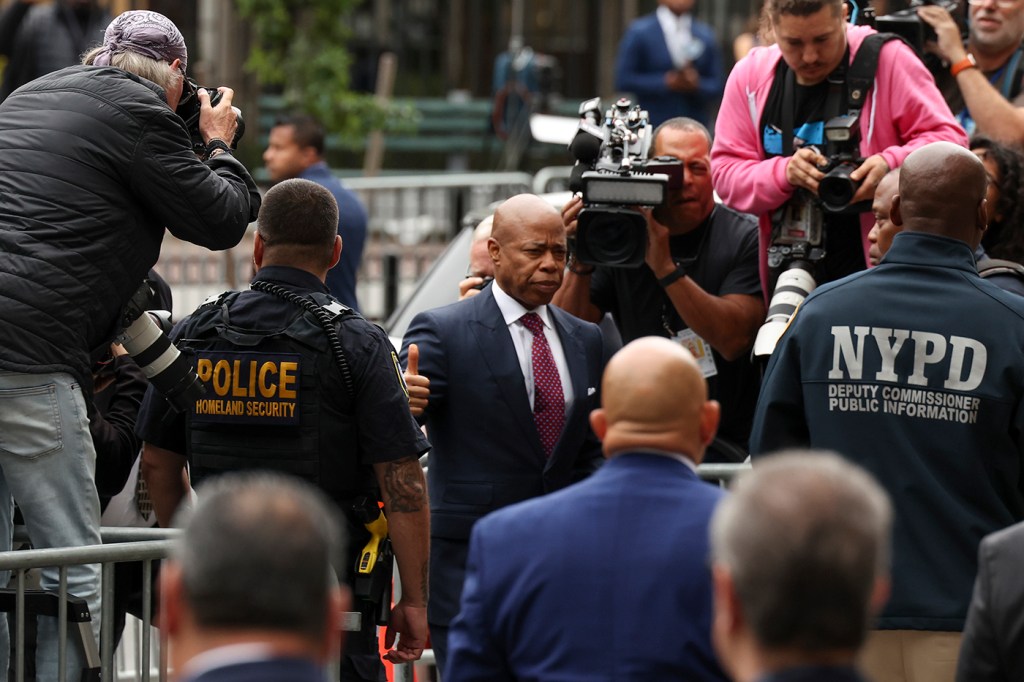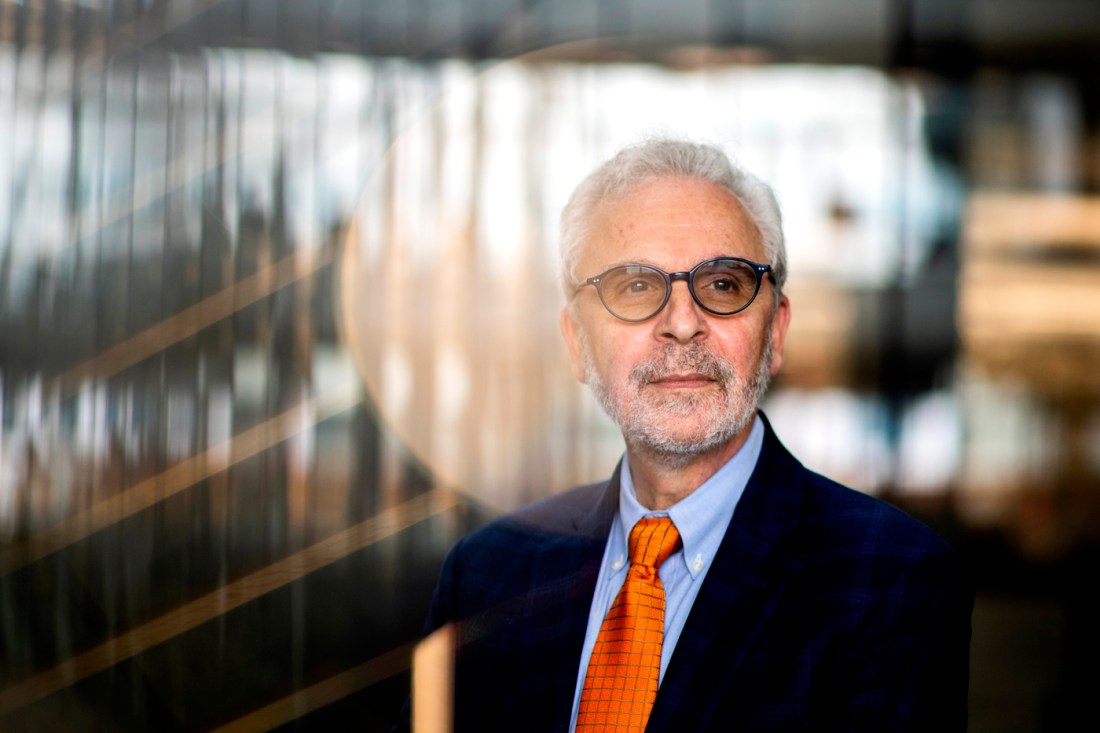Eric Adams bribery investigation could lead to more indictments, Northeastern white collar crime expert says
“This is big. It’s big not just for New York, but the political system in general,” says Nikos Passas, a professor of criminology and criminal justice at Northeastern University.

More names are likely to surface from an investigation that resulted in a historic five-count federal indictment against New York City Mayor Eric Adams this week — one alleging that he took bribes and illegal campaign contributions, says an expert on white collar crime.
“This is big. It’s big not just for New York, but the political system in general,” says Nikos Passas, a professor of criminology and criminal justice at Northeastern University. “It shows that there’s no one-party monopoly on this kind of misconduct.”
In what caps months of scrutiny into Adams’ inner circle — and years of suspicion — Adams was indicted this week on charges of bribery conspiracy, fraud and soliciting illegal foreign campaign donations stemming from a “straw donor” scheme whereby he allegedly used a city program that matches small-dollar contributions with public funds in connection with illicit money from overseas.

He’s also accused of taking improper gifts from Turkish officials, using his political influence in turn to help approve a towering 36-story skyscraper to house the Turkish consulate, among other alleged favors.
Passas says, based on the sheer scope of the indictment — 57 pages of voluminous detail and description citing a number of co-conspirators — there are sure to be more individuals charged.
“This investigation isn’t over by any means. There were a lot of people involved; the inquiries continue,” Passas says. “There were a lot of co-conspirators, and I don’t think we’ve heard the last word from the prosecution on the federal or state side.”
“You can expect that the investigations will bring up additional connections,” he says.
Adams faces up to 45 years in prison if convicted on all counts. He pleaded not guilty to the charges during his first court appearance Friday.
Featured Posts
“The essence of corruption is putting your own private interests above and beyond the interests that you were elected or appointed to serve,” he says. “What we’re talking about here is receiving or soliciting undue advantages in exchange for political favors.”
Passas draws parallels between the Adams case and the prosecution of former President Donald Trump.
“There is a lot of evidence, there are a lot of specifics,” Passas says. “It’s similar in nature to the walking indictment we saw out of Georgia against Donald Trump. That tells you about what systematic investigation has already taken place, and what evidence is already available to the prosecution.”
Of the indictment, he says, all in all: “It is substantial, significant, and it tells you that there are so many people involved. Either they will be indicted also, or they will be cooperating with prosecutors.”
Should Adams step down, as others have urged? Given the strength of the evidence, Passas says the pressure for him to step down is sure to increase. But he notes that, in a political landscape so visibly altered by Trump’s norm-busting, it’s fashionable to cling to power. Indeed, several other recent high-profile corruption and fraud cases, notably former Sen. Bob Menendez’s and former U.S. Rep. George Santos’, involved varying levels of recalcitrance in the face of what some might describe as damning evidence.
“Unfortunately the level of integrity of the political discourse in the U.S. suggests that you can lie in the face of evidence — and that people are going to believe lies in the face of evidence,” he says.
“We’re talking about a problem with foreign influence in American politics here,” Passas says. “This is not unique — it was the first impeachment against Trump.”
The Supreme Court remained mute when the issue of foreign influence arrived at its doorstep in the form of the so-called Foreign Emoluments Clauses, provisions in the U.S. Constitution designed to curtail presidential corruption.
“The U.S. Supreme Court refused to clarify what are emoluments, who has standing to press charges or prosecute; and what are the standards?” Passas says. “They sat the whole thing out and did not offer any clarity to the Constitution, creating a bad precedent for future U.S. presidents.”
Some New Yorkers have wondered aloud whether corruption in the Big Apple is a uniquely Manhattan phenomenon. But Passas says the problem is endemic to the campaign finance system itself, and transcends both parties.
“This is why what this case highlights and exemplifies is of extraordinary significance — and goes beyond one case in New York,” he says.
“You have scandals affecting both Democrats and Republicans going back in time,” he says. “These straw contributions to political finance tell you something not only about Democrats and New York, but about campaign finance and corruption more generally; it tells you something about the public confidence in the quality of governance and the quality of political leadership in this country.”










